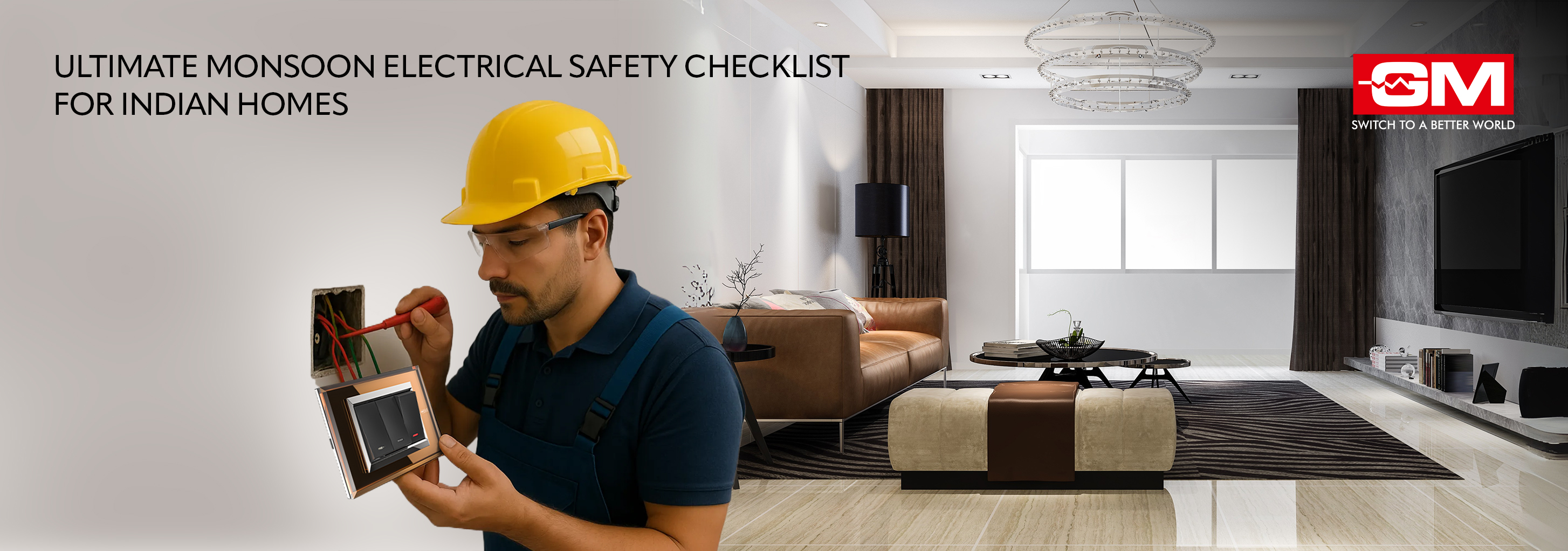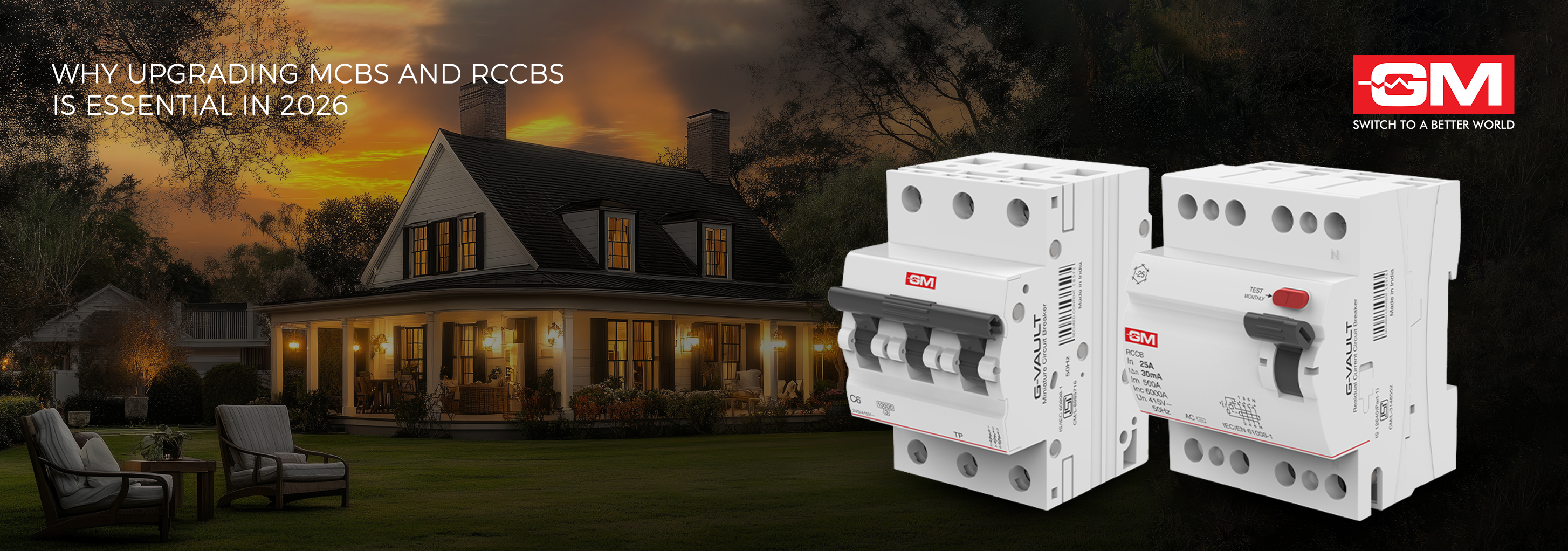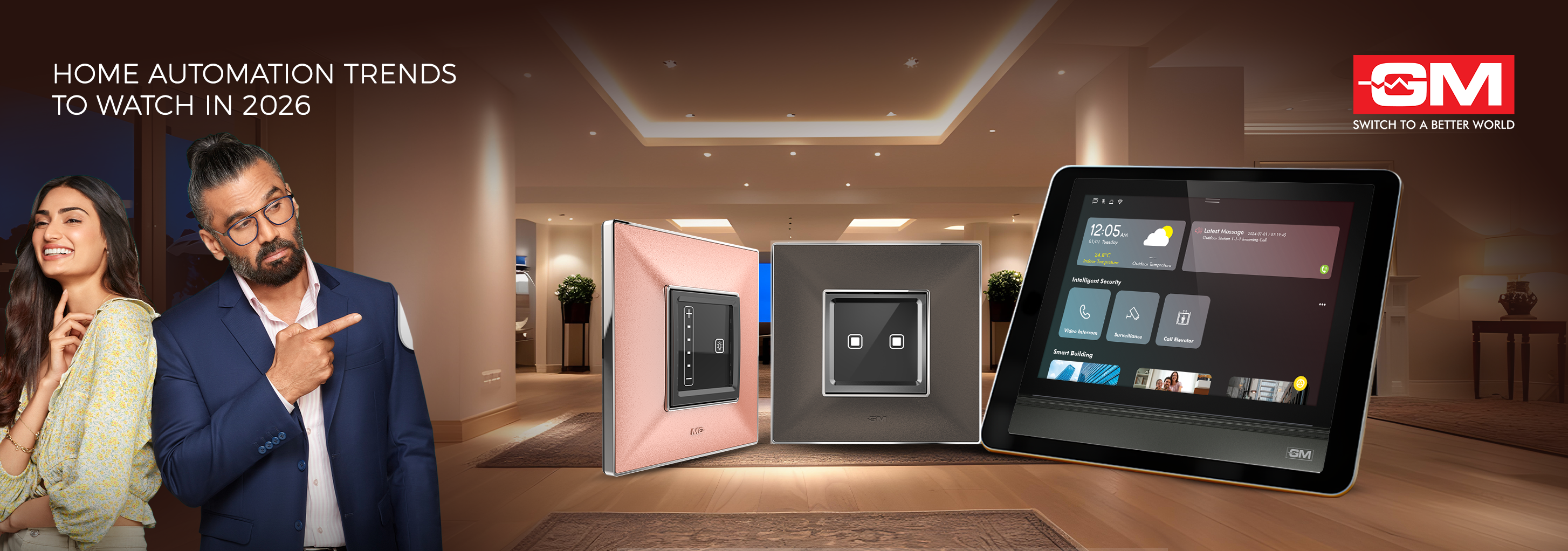Blog
Ultimate Monsoon Electrical Safety Checklist for Indian Homes
Updated on Jul 2025

The monsoon brings great relief from the rising summer temperatures and consistent sweating. However, it also brings potential electrical short circuits, unpredictable power cuts, and potential fire hazards. Owing to the heavy rains, thunderstorms, and increased lighting activity, it is important for every Indian household to consider the safety precautions about electricity. A single exposed wire or faulty socket can cause life-threatening mishaps that otherwise could have been prevented with simple, proactive steps.
Whether you're living in a metro city apartment or an independent home in a small town, this blog article will walk you through the necessary safety precautions about electricity during monsoon with the electrical safety checklist.
Importance of Monsoon Electrical Safety Precautions
The high humidity levels during monsoon, frequent downpours of rainwater, and moisture-laden walls increase the risk of the following.
-
Equipment damage
-
Shock Hazards
-
Electrical fires
-
Voltage Fluctuations
-
Short circuits
Understanding the home electrical safety tips is crucial for the well being of homeowners and their families. Following the safety precautions ensures that you remain safe and live peacefully without posing any risk of potential mishaps. Besides, it also helps you to deal better with any electrical challenge that wasn’t anticipated before the monsoon.
10 Electrical Safety Checklist During Monsoon
Here are some essential safety precautions about electricity during the monsoon season.
1. Inspect Your Home’s Wiring and Replace Damaged Cables
The wiring setup in a residential home is the foundation of a safe electrical system. As time passes, the cables and wires can wear out, become brittle, or get damaged by insects and rodents. Look for unattended copper wires, loose connections, discoloration, etc. Ask an electrician to replace old wires with flame retardant cables, especially in high-risk areas like the kitchen. Replace the existing low quality wires that are prone to overheating or short circuit.
2. Rely on Modular Switches with Proper Insulation
Using a worn out switch is among the most ignored home electrical safety issues. During the monsoon, such switchboards pose the risk of moisture or water seeping into them, resulting in electric shocks and sparks.
Hence, to keep your loved ones safe from any potential mishap, upgrade your switches that provide better insulation. Additionally, cover the outdoor switches or sockets with weatherproof boxes that prevent the chances of water seeping in. GM Modular switches and plates are not just aesthetically pleasing but also provide enhanced insulation and are moisture resistant to a certain degree.
3. Ensure Proper Earthing in Monsoon
Establish a safe and solid earthing system, especially during the monsoon season. It is among the non-negotiable safety precautions about electricity. Proper earthing in a residential home ensures that the excess electricity gets diverted to the ground, thus reducing the risk of electrical shocks. Additionally, it also protects the electrical appliances from getting damaged due to excess electricity. Get your home’s electrical system checked by a professional electrician and ensure your home’s earthing is up to the mark.
If needed, explore the choice of installing Residual Current Circuit Breakers that help to instantly cut off the power supply in cases of leakage. These devices add an extra layer of protection to prevent fatal shocks or equipment damage.
4. Avoid Overloading Power Sockets
While it is natural to stay indoors during the monsoon season, when it is raining, chances are high that a lot more devices are plugged into the sockets. Common devices that remain plugged in include laptops, computers, chargers, routers, TVs, etc. However, it is advised to limit the use of power sockets during the monsoon. Overloading the sockets can lead to power strip overheating and electrical fires.
Besides, the lightning and thunderstorms can also lead to a power surge that can potentially damage your electrical gadgets and appliances. Replace any power strip that has started showing signs of burning or has been damaged. Buy surge-protected multi plugs or sockets that can handle variable loading safely, especially during rain.
5. Keep Electrical Cords Dry and Elevated
If water gets accumulated, even in the form of the slightest condensation, it can potentially damage the internal parts and electrical circuits of appliances. Look for waterproof covers for cords that have outdoor outlets.
For homes that are prone to waterlogging during monsoons, place the electrical appliances at a height above the floor. Following this, home electrical safety precautions are necessary for heavy appliances such as refrigerators, air conditioners, and washing machines. Placing them at an elevated height prevents water from entering these appliances, thus keeping them safe for use.
6. Secure Outdoor Electrical Setup
The outdoor electrical connections are highly prone to causing mishaps during the monsoon. Garden lights, balcony plug points, and other similar outdoor connections need to be secured with electrical switch plates that can encompass and safeguard these types of electrical switches and sockets.
Look for weather resistant electrical switch plates that prevent any accidental contact with potential live wires. The switch plates from GM Modular not only enhance your home’s interiors but also safeguard lives from potential risks during all the seasons of the year.
7. Check the Coaxial cables for TV and Internet
Inspect the coaxial cables for any potential signs of rust or loose ends. Replace the damaged coaxial cables, as they can destroy the electrical appliance in seconds if there is a power surge. A better electrical safety precaution in monsoon is to unplug the non-essential electronics and unused appliances to protect them from any damage.
For example, electrical appliances like ACs, refrigerators, water heaters, microwaves, and computers must be unplugged during thunderstorms, as lightning strikes may lead to a power surge, causing permanent damage to the appliance.
8. Conduct Circuit Breaker Maintenance Before Monsoon
An essential component of any residential electrical setup, the circuit breaker is known to automatically disconnect the power supply if there is an event of power overload. Conducting a maintenance and inspection of a circuit breaker before the monsoon helps to spot any potential damage.
Maintaining the circuit breaker ensures it is functioning properly, thus giving you a sense of peace that it is protecting the electrical appliances as well as the lives of family members from any electrical emergencies.
9. Check for Potential Water Leaks
This is seemingly the most important among the safety precautions about electricity. Before and during the monsoon, carefully notice walls, windows, or any other corners of your home for potential water leaks. The water seeping in through walls and windows may come in contact with switchboards or wires, thus posing risks of electrical shocks and fires.
Call for a repairman and immediately get the leakage fixed. Having zero to minimal water leaks in your home during monsoon ensures that homeowners and their families can walk freely without worrying about any potential electrical mishap.
10. Educate Family Members on Safety Precautions About Electricity
Educate your family members, especially kids, about the electrical safety tips during the monsoon. Make them aware of the basic safety practices if there is any potential electrical hazard. Ensure they know the importance of not getting in contact with any electrical switchboard with wet hands, unplugging devices during thunderstorms, and avoiding all electrical systems during lightning activity in monsoon.
Undoubtedly, the monsoon is a beautiful season, but it brings a set of challenges, especially for electrical infrastructure in residential homes. Taking proactive safety precautions about electricity helps not only to avoid any potential damage or hazard, but also creates a safe and resilient home that’s ready for every monsoon challenge. With GM Modular’s range of safe, efficient, and durable electrical solutions, protecting your home becomes simple and stress-free. Let the monsoons pour, and your home will stay powered and protected.
Facing other electrical issues at home? Read our guide on Common Electrical Problems & How to Fix Them.
Frequently Asked Questions
1. How to avoid an electric shock in the rainy season?
A. Follow the monsoon electrical safety tips proactively, such as avoiding coming in contact with electrical wires and cables with wet hands, unplugging unused appliances, avoiding overloading the electrical sockets, etc. Following the electrical safety checklist will keep you away from any electric shocks during the rainy season.
2. Why is it important to follow safety precautions when using electricity?
A. Following the safety precautions when using electricity is necessary to safeguard your life, as any accidental electrical mishap can lead to life threatening situations.
3. Why does electricity go out when it's raining?
A. The insulating material of wires or sockets can be destroyed by prolonged and heavy rains, resulting in a blown fuse or a power failure.
4. How often should I get my home wiring checked?
A. A thorough home wiring and electrical setup inspection every 2–3 years is advisable, or annually if you live in an area with heavy rainfall or lightning.
5. Can moisture cause electrical fires?
Yes. Moisture is water in its condensed form, and the presence of water near electrical circuits, switchboards, etc., can cause overheating and fires if left unchecked.
Related Blogs

Why Upgrading MCBs and RCCBs Is Essential in 2026
Picture this: you're hosting a family dinner, the air conditioner is running, the induction cooktop is on full blast, and someone plugs in the mixer grinder. Suddenly, everything goes dark. If this scenario feels familiar, your home's electrical prot
Read More
Why LED Lighting Will Be the Standard for Homes in 2026
Modern residential illumination in 2026 is defined by the strategic integration of LED strip lights. By providing a soft, indirect glow that avoids the harshness of traditional tubes, these solutions allow Indian homeowners to achieve a sophisticated
Read More
Is 2026 the Right Year to Upgrade to Smart Switches?
Picture this: you are already running late for work, and halfway to the office, a nagging thought strikes—did you turn off the bedroom AC? Now imagine resolving that worry with a single tap on your phone. This is not a distant dream anymore. Sm
Read More
Home Automation Trends to Watch in 2026
Imagine walking into your home after a long day. The lights adjust to your preferred evening setting, the fan speeds up to counter the summer heat, and your favourite playlist begins softly in the background. No buttons pressed, no commands spoken. T
Read More